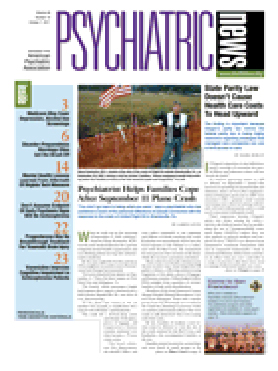Researchers have investigated as many as 50 compounds as treatments for traumatic brain injury (TBI) in 30 trials over 30 years. All of them have failed. Have women held the therapeutic answer all along?
Donald Stein, Ph.D., the Asa G. Candler Professor of Emergency Medicine at Emory University School of Medicine and director of Emory's Department of Emergency Medicine Brain Research Laboratory, and his colleagues think so. Stein spoke July 22 at a Washington, D.C., seminar hosted by the Society for Women's Health Research on "What a Difference an X Makes: The State of Women's Health Research." Female veterans were the focus of this year's annual event.
Stein outlined the dramatic toll of TBI, explaining that the more than 1.5 million annual cases of TBI in the United States dwarf the incidence of breast cancer (176,300 cases), HIV/AIDS (43,681 cases), and multiple sclerosis (10,400 cases). "Direct medical costs and indirect costs such as lost productivity from TBI totaled an estimated $60 billion in the U.S. in 2004," he said. He cited U.S. Army Institute of Surgical Research statistics showing that 28 percent of military personnel with injuries from hostilities in Iraq and Afghanistan who were evacuated to Walter Reed Army Medical Center had traumatic brain injuries.
Stein and his colleagues noticed the sex difference years ago: Female rats with brain damage showed greater recovery on learning and memory tasks than male rats, but it depended on where they were in their estrus cycle at the time of the injury. "We noticed a lot less swelling of the brain when progesterone levels were high," said Stein. "This led us to think that progesterone treatment might be beneficial in both males and females."
Progesterone is primarily produced in the ovaries and in the placenta during pregnancy; researchers theorize that the hormone has evolved to protect the fetus during gestation. But its role as a neurosteroid has become apparent as researchers realized only in the past few decades that it is also synthesized by oligodendrocytes and some neurons in the brains of males and females, in roughly equal amounts in both sexes. "Women clearly make more progesterone than men do, but both sexes produce progesterone," Stein explained to Psychiatric News.
Stein and his colleagues reported in the April 2007 Annals of Emergency Medicine the results of a three-year, randomized, double-blind, placebo-controlled trial called ProTECT (Progesterone for Traumatic brain injury—Experimental Clinical Treatment), conducted at Atlanta's Grady Memorial Hospital, the only Level 1 trauma center in north Georgia.
In that trial, 77 patients received progesterone and 23 received placebo; the groups had similar demographic and clinical characteristics. No serious adverse events were attributed to progesterone. Adverse and serious adverse event rates were similar in both groups, except that patients randomized to progesterone had a lower 30-day mortality rate than did controls.
Thirty days post-injury, the majority of severe traumatic brain injury survivors in both groups had relatively poor Glasgow Outcome Scale-Extended and Disability Rating Scale scores (Stein attributed this result to the early phase of recovery in these patients), but the moderate traumatic brain injury survivors who received progesterone were four times more likely to have a moderate to good outcome than those randomized to placebo. The researchers evaluated disability using the Disability Rating Scale and assessed functional outcome using the Glasgow Outcome Scale.
In 2010, Stein's colleague David Wright, M.D., an assistant professor of emergency medicine at Emory, launched a multisite phase 3 clinical trial (ProTECT III) of progesterone for treatment of TBI.
"By expanding our test sites to 17 major trauma centers across 15 states, and enrolling more than 1,000 patients, we hope to confirm these preliminary findings and determine if progesterone benefits victims of acute traumatic brain injury," said Wright.
More than 300 patients are currently enrolled in the trial, which is funded by the National Institutes of Health to follow patients for as long as four years.
Future research directions for this promising neurosteroid include developing appropriate forms of it for field delivery, extending studies to infants and children with TBI, and investigating its use in other disorders such as stroke, diabetic neuropathy, and spinal-cord injuries.
Stein detailed other promising therapies on the horizon for TBI, but is most optimistic about progesterone's potential for this and other neurologic disease applications. TBI patients and their loved ones will surely agree with Stein when he says: "It's nice to think this may be happening soon."


